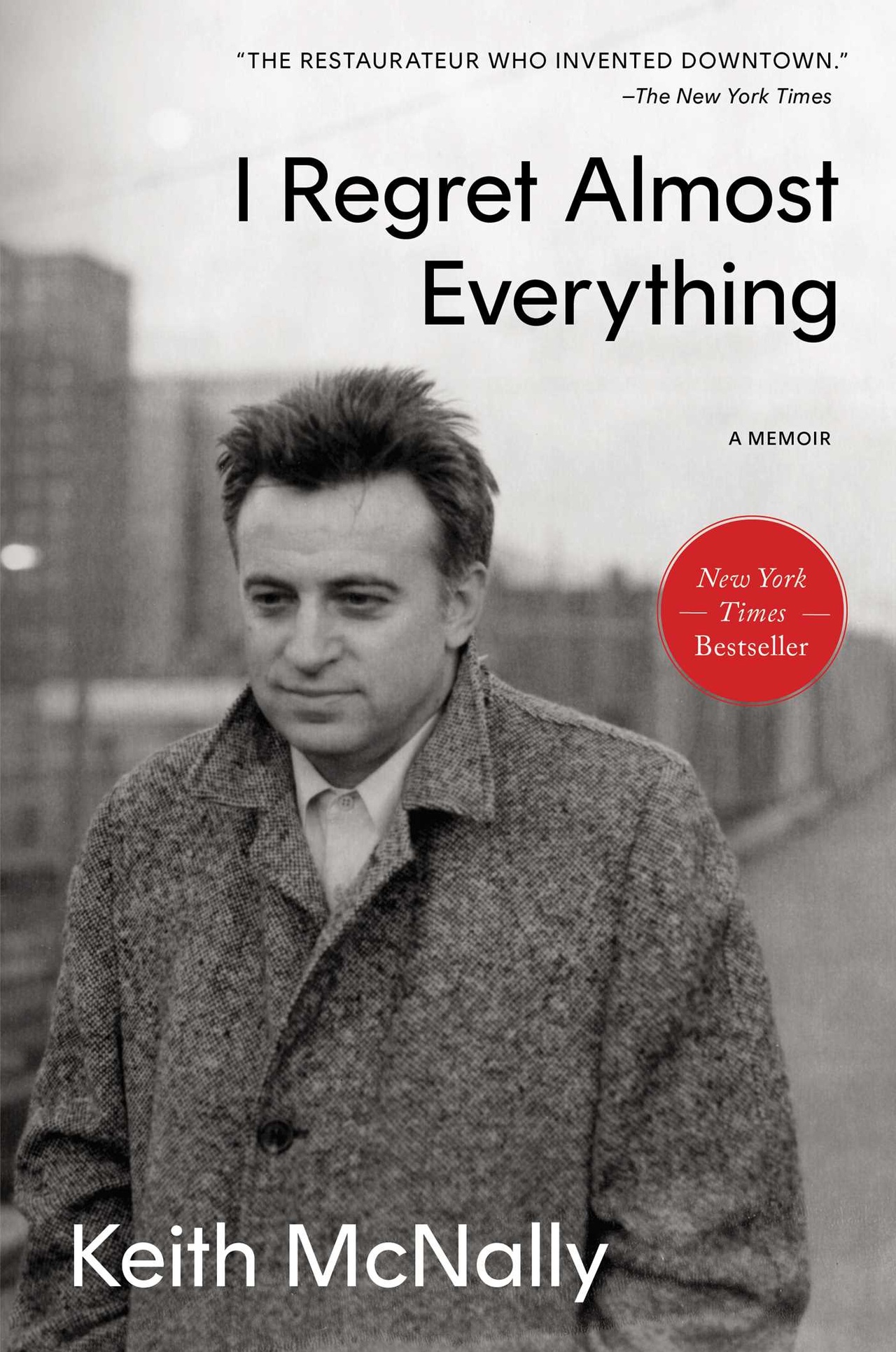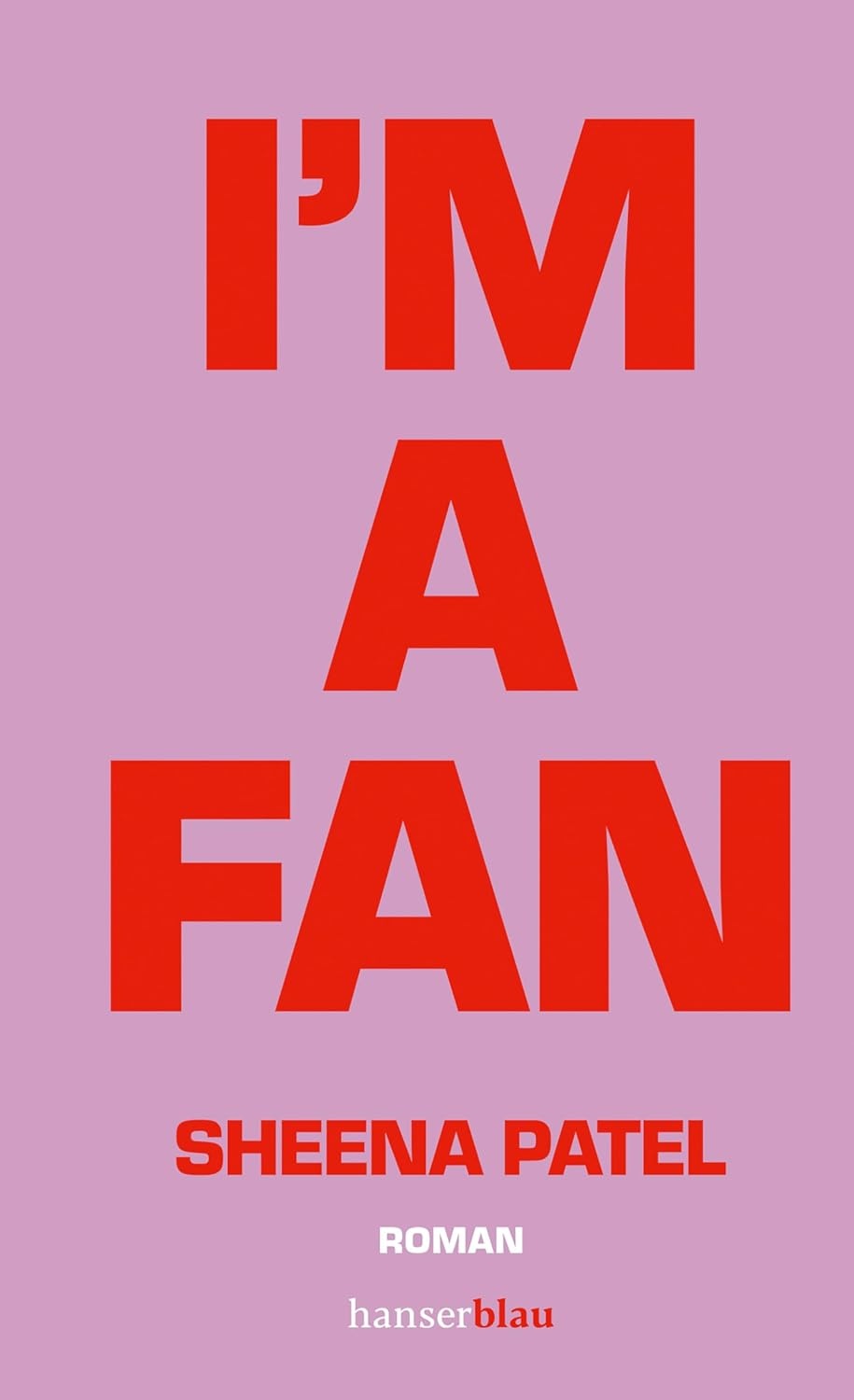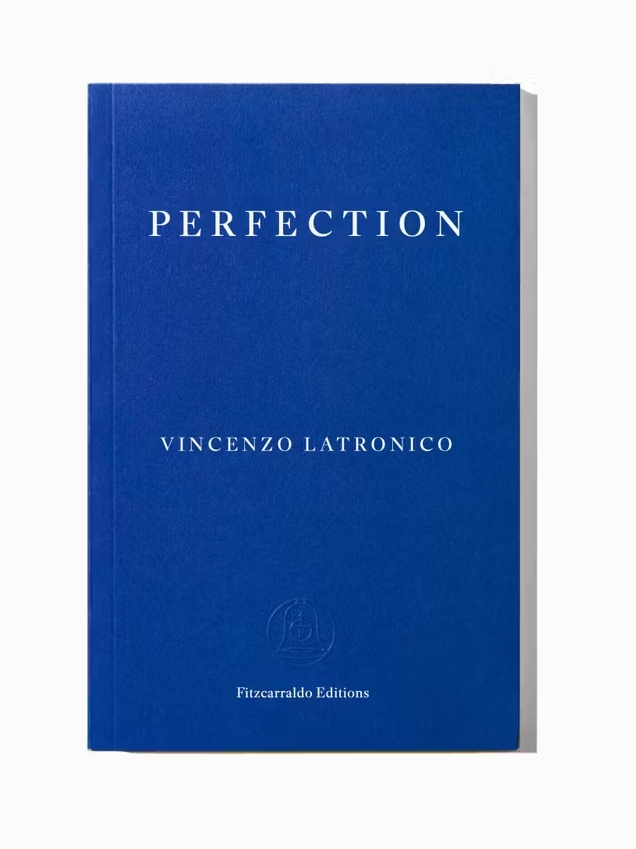For this edition of Seen & Read, Isabelle Graw recommends books for the summer break: three page-turners that revolve around contradictory figures. The first book – confessions of Keith McNally – surprises with the successful culinary entrepreneur’s self-critical reflections. The second is a first-person account of a protagonist who oscillates between self-humiliation and social analysis in a novel by Sheena Patel. In the third, Vincenzo Latronico depicts a stereotypical expat couple and, by extension, Berlin’s creative scene.
Keith McNally, I Regret Almost Everything
This book is promising for its title alone, which turns Edith Piaf’s “Non, je ne regrette rien” on its head. And yet instead of offering an embittered look back to the past, this memoir reads like a well written page-turner. Its author is a famous New York restaurateur who has opened one hip restaurant after another in downtown New York since the 1980s, from The Odeon and Pastis to Lucky Strike and the legendary Balthazar. The celebrated club Nell’s was also initiated by McNally and his ex-wife, Lynn Wagenknecht. In recent times, however, McNally has had to deal with multiple misfortunes, which are worked through in his memoir. A few years ago, for example, he suffered a stroke that paralyzed his right arm and impedes his speech to this day. His later separation from his second wife also affected him so badly that he attempted suicide, thankfully without success. It’s impressive how unsparingly self-critical this author is when looking back on his own life and actions, such as when he castigates himself for having blamed his ex-wife for their separation in front of their children. In retrospect, he even understands why both his wives left him, since he was mentally absent and neglected his families. The detailed descriptions of McNally’s business initiatives mean his book also reads like an instruction manual for founding a successful restaurant. It is advisable, for example, to put the same effort into interiors that McNally does, such as searching all over France for selected pieces of furniture. In Balthazar, he opted for a large mirror and side lighting, which creates a comfortable atmosphere. On the other hand, there should not be too many windows, since a restaurant ideally forms its own social cosmos. McNally also reveals himself to be a bohemian-transgressive hetero man of the 1980s, by way of flippantly denying claims his friend Woody Allen abused his adopted daughter and exonerating Allen of any guilt. And so it’s surprising that, in principle, he also sides with the #MeToo movement. In part, it’s contradictions like this that make the book such a captivating beach read.
Gallery Books, 2025, 320 pages.
Sheena Patel, I’m a Fan
This inner monologue is quite something. For like Chris Kraus in I Love Dick (1997) before her, the protagonist of this book does not shy away from massively humiliating herself. She latches onto a rich white man, despite him obviously wanting a no-strings affair rather than a serious relationship. She also stalks his other lover – a rich and successful influencer – whom she is downright obsessed with and follows around like a crazed fan. Crucially, however, this protagonist – unlike that of I Love Dick – also explicitly reflects on the social causes of her behavior. In a society beating with the “throbbing pulse of fascism,” which is tolerated by a population no longer capable of critical thought, the only position left to adopt is that of the ultimate fan. While the protagonist aspires to a similar level of fame as the aforementioned influencer, she explains this with the structures of social media and its “individualistic, Thatcherite neo-colonial politics,” which transform us into “scripted individual brands.” In part, then, she fixates on the posts of her lover’s paramour because she believes they can teach her how to successfully mutate into a successful online brand herself. She also puts the fact that she does all she can to continue her affair with this rich man down to the impact of capitalism. For the only thing that can protect us from the “exploitatively neoliberal regimes” of today are “family money and luxuriously austere domestic settings” – the very things the “man [she wants] to be with” promises her. In a world where only money matters, prostrating oneself at the feet of a wealthy white man is thus tantamount to a survival strategy for a destitute PoC, as she describes herself. While her inner monologue features numerous insightful reflections, it occasionally tips over into anti-feminist cynicism: the protagonist has clearly lost her belief in female solidarity. As soon as women compete for a rich man, and especially one “with a dick like his,” there is no more sisterhood: “We will still turn against one another. What we should have done is unionise but instead we splinter.” There is some truth to the observation that women revert to fighting for their own self-interests in situations of heightened competition. But in my experience, the knowledge of this “dark side of sisterhood” (Jo Freeman) – that is, of the existence of feelings of envy and aggression among women – can equally be the thing that leads them to stick together and support one another. The protagonist is also impressively blunt in describing her own obsession with success, saying she wants to finally earn “six figure advances” and stop “jumping for scraps of attention like some rabid dog.” Unlike those with good relationships and “a publicist,” however, she has to continue beating down those doors that seem to open automatically for others. But the effort seems to have paid off for Patel, who has achieved the breakthrough her protagonist craves for with this book.
Rough Trade Books, 2023, 240 pages.
Vincenzo Latronico, Perfection
This book represents a remarkable update of Georges Perec’s Les Choses (1965). For Vincenzo Latronico, too, depicts the lives of a couple through things and lifestyles; Perfection resembles an ethnographic study, favoring, as the nouveau romans of the postwar period did, the microscopic description over the conventional narrative. The novel’s opening is programmatic in this respect: a pages-long description of the Berlin Altbau apartment of the aforementioned couple – Anna and Tom – including the monstera plants that are typical of such interiors. It’s no coincidence that the author gave both characters such classic, generic names. For he does not present them as complex and inherently contradictory individuals, but as prototypes of the species of “creative expats” living in Berlin around 2015. As with Leif Randt’s novel Allegro Pastel (2025), this book contains a wealth of pointed sociological observations, such as the insight that affection and support often go hand in hand with Schadenfreude within the Berlin expat community. Rarely has the pleasure that our supposed “friends” often take in our failure been as soberly registered as by Latronico here. Elsewhere, the narrator dryly notes that the word gentrification is almost exclusively used by those responsible for it. It is also my experience that many critics of gentrification fail to realize that they themselves are part of the problem. “Anna and Tom” work as freelancers in the creative scene and spend their entire time scrolling through Instagram on the search for new ideas and inspiration; leaving the platform would thus be unthinkable for them, according to the narrator. Unlike earlier generations, who talked about films, books, or politics, Anna and Tom mostly speak to their acquaintances about food – a way of defining themselves, as the all-knowing narrator explains. Their love life also turns out to be fairly disappointing: While they want to grow old together, they rarely have sex and don’t enjoy it much when they do. By this point at the latest, the question presents itself of why the narrator is so negative in his description of his characters. They are also unable to defend themselves against his depressing account of them – their room for maneuver seems extremely limited. The Berlin myth too falls apart at the end of the book: Anna and Tom experience how the city changes, how room for experimentation disappears and the creative scene is displaced by high rents and a lack of kindergarten places. They turn their back on Berlin to spend what is depicted as a dreary summer in Portugal, before finally leaving Berlin for good. While they occasionally appear clichéd as figures, the stereotyped exaggeration of their behavior also brings new insights. I would have suggested Tocotronic’s “Bye Bye Berlin” as a title for this sober depiction of creative expat existence.
Fitzcaraldo Editions, 2025, 136 pages.
Isabelle Graw is the cofounder and publisher of TEXTE ZUR KUNST and teaches art history and theory at the Hochschule für Bildende Künste – Städelschule in Frankfurt am Main. Her most recent publications include In Another World: Notes, 2014–2017 (Sternberg Press, 2020), Three Cases of Value Reflection: Ponge, Whitten, Banksy (Sternberg Press, 2021), and On the Benefits of Friendship (Sternberg Press, 2023); and the forthcoming Fear and Money: A Novel (Sternberg/MIT Press, 2025).
Image credits: 1. © Rob Kulisek, image editing by Hannah Bremer; 2. © Gallery Books, 3. © Hanser blau, 4. © Fitzcarraldo Editions





